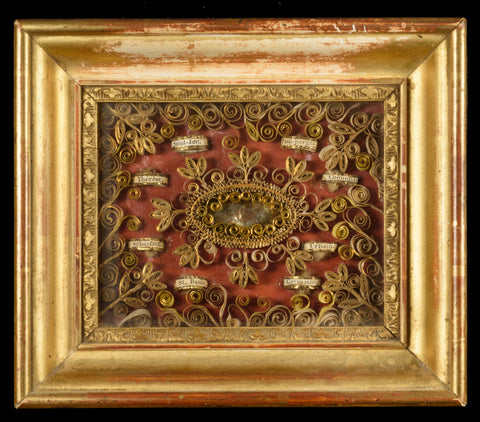Saint Paul of Narbonne: Bishop and Apostle of the Faith
Saint Paul of Narbonne, also known as Paulus Narbonensis, is an iconic figure in Christianity, recognized for his role as bishop of the city of Narbonne in the early 4th century. His life and work left an indelible mark on the history of Christianity in the West. In this article, we will explore in detail his biography, spiritual legacy, and impact on the spread of the Christian faith.

Reliquary containing a relic of Saint Paul of Narbonne on relics.es
Youth and Conversion
The exact details of Paul of Narbonne's early life are little known, but it is widely accepted that he was born in the Narbonne region of Gaul around the end of the 3rd century. He was reportedly raised in a Christian family, but the circumstances of his conversion to Christianity are not clearly documented. However, it is likely that it was inspired by the early teachings of the Christian faith that were spreading across the Roman Empire at this time.
Ministry and Episcopate
Paul of Narbonne entered the ecclesiastical ministry and quickly gained a reputation for his piety, erudition and missionary zeal. His talents and commitment led to his elevation to the episcopate, becoming Bishop of Narbonne, a position he occupied with distinction.
As bishop, Paul played a crucial role in the consolidation and expansion of the Church in Gaul, facing the challenges of evangelization in a still largely pagan society. He preached the word of God, established churches and guided the faithful in the faith, thus contributing to the growth of Christianity in the region.
Defense of the Faith
Paul of Narbonne was also an ardent defender of the Christian faith against heresies that threatened the unity of the Church. He participated in several councils and synods where important theological and ecclesiastical issues were debated, thereby contributing to the clarification of doctrine and the preservation of orthodoxy.
Legends and Heritage
Although the precise details of his life are sometimes difficult to separate from legend, the legacy of Saint Paul of Narbonne remains undeniable. His memory is venerated in the Catholic Church, particularly in the Narbonne region where he is considered a patron saint. His life and teachings continue to inspire Christians throughout the ages, testifying to the power of faith and devotion.
Conclusion
Saint Paul of Narbonne embodies the ideal of the bishop-pastor, devoted to the service of God and his people. His life bears witness to the vitality and resilience of Christianity in the first centuries of its expansion. As an apostle of the faith and defender of orthodoxy, he remains a figure of inspiration and devotion to Christians around the world.
Benoît, A. (2001). Saint Paul de Narbonne: Évêque et Apôtre. Éditions L'Harmattan.
Delehaye, H. (1925). Les Saints de Gaule au début du IVe siècle. Société des Bollandistes.
Dureau, A. (1854). Histoire des premiers évêques de Narbonne. Imprimerie de F. Didot frères.
Schwarz, L. (1999). Les Conciles et Synodes du IVe siècle. Éditions de l’École française de Rome.
Wilmart, A. (1931). L'Église de Narbonne à l'époque des premiers évêques. Éditions Beauchesne.
Laeuchli, S. (1998). Les Débats théologiques et ecclésiastiques du IVe siècle. Éditions du Seuil.
Roux, J. (1960). La Vie et l'œuvre des premiers évêques de Gaule. Éditions du Cerf.
Meyer, H. (2012). L'Évangélisation en Gaule: Saint Paul de Narbonne et ses contemporains. Cambridge University Press.


